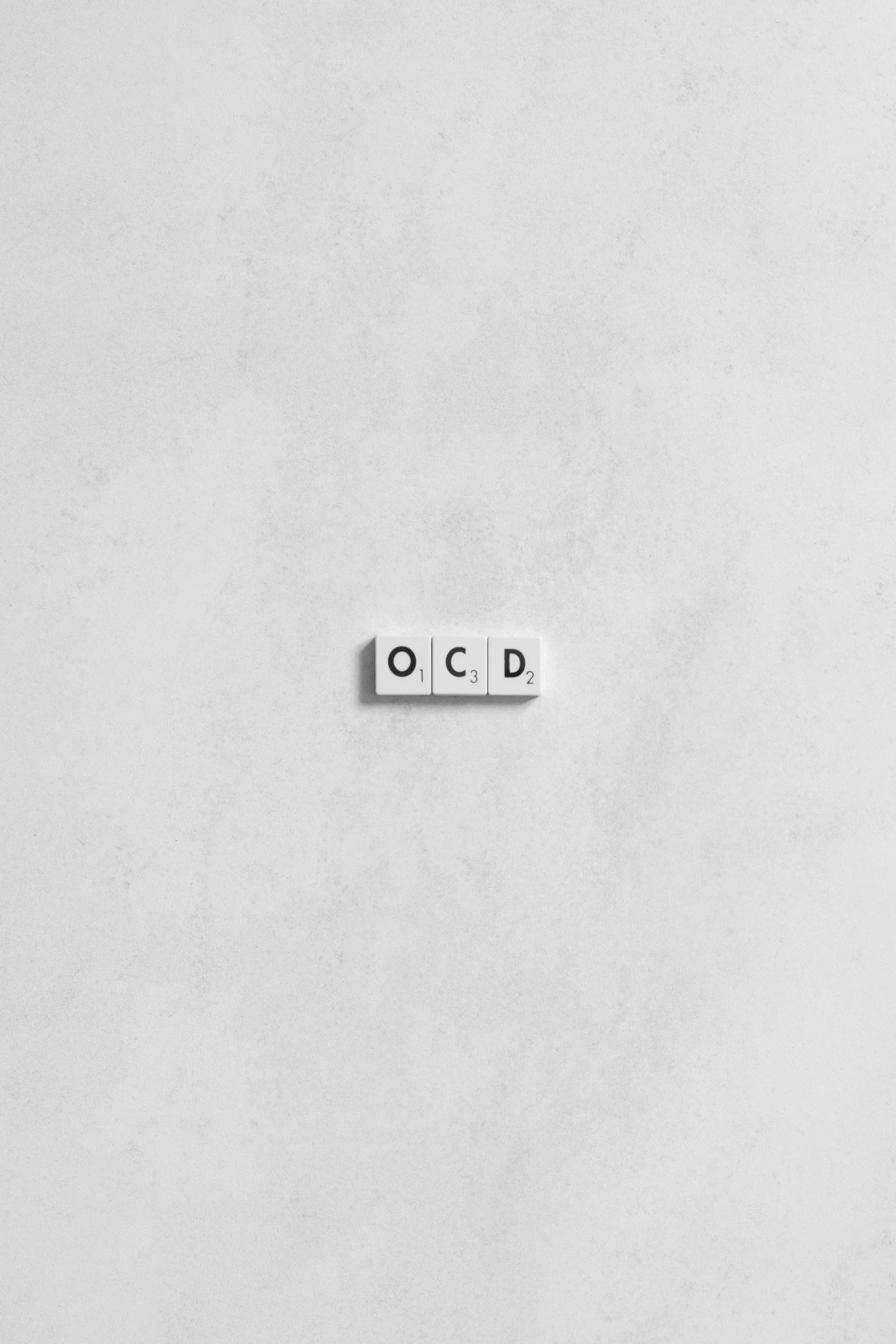
Obsessive-Compulsive Disorder
Obsessive-Compulsive Disorder Therapy for Adults
Living with OCD is not just “being a bit anxious”.
OCD isn’t “being a perfectionist.” It’s not about liking things tidy or checking the stove once. It’s living in a brain that throws up the most random, upsetting, or ridiculous thoughts, and then demands a 17-step ritual and full moral inquest about it. It’s the loop that doesn’t stop. The intrusive thought that feels like a threat. The mental rituals that keep you from doing anything else. The exhaustion of trying to “logic your way out of it”, and losing every time.
Working with clients who have OCD is some of the most meaningful therapy I do. You’re often deeply thoughtful, principled, caring, and very, very hard on yourself. You want to get things “right,” avoid causing harm, be a good person, partner, friend, parent, human. OCD weaponises those exact strengths.
I care about helping you reclaim your time, your energy, your relationships from OCD’s grip. I don’t promise quick fixes, but I do promise honesty, tools that work, and a therapeutic relationship where you won’t have to prove that your pain is real.
If you’re feeling uncertain or scared to start, that’s okay. OCD doesn’t like uncertainty. I do. Therapy can help you build tolerance for the things your brain tells you are unbearable. (Spoiler: they’re not.)
And no, you're not the “worst case I’ve ever seen.” I promise.
What is OCD?
OCD shows up in all kinds of ways, and many people don’t even realise they have it at first. You might be dealing with:
Intrusive thoughts that feel violent, sexual, blasphemous, or just deeply “wrong”
Mental rituals like rumination, counting, checking, neutralising, or confessing
Fear of harm to yourself or others, despite being deeply caring and careful
Need for certainty (“But how do I know I won’t…?”)
Hyper-responsibility aka feeling like you have to prevent every possible bad thing
Relationship OCD, moral scrupulosity, health OCD, ‘just right’ obsessions
Feeling misunderstood or dismissed by past professionals
It’s not about the content of the thoughts. It’s the relationship with them, and the compulsive strategies that make your world smaller over time.
Your brain loves starting sentences with “What if...” and then absolutely spiralling
You’ve mentally reviewed one decision 500 times and still aren’t sure you made the right one
You’ve googled something that made you feel deeply ashamed
You check things over and over (taps, stoves, doors, memories, body sensations, conversations)
You avoid certain places, people, numbers, or words because they feel wrong
You have intrusive thoughts that make you wonder if you’re secretly a terrible person
OCD is a shapeshifter. It latches onto what you care about most (identity, safety, morality, relationships) and then makes that your prison.
Signs You Might Be Dealing With OCD
Common OCD Themes I Work With
Sexual orientation OCD (SO-OCD)
Relationship OCD (ROCD)
Religious / scrupulosity OCD
Harm OCD
Contamination fears
Sexual intrusive thoughts
Just right / perfectionism
Health anxiety
And the classic: “I’m not sure this is OCD…. what if it’s not?!” (If you’re afraid of having OCD incorrectly, that’s very OCD of you.)
How Therapy Can Help
OCD doesn’t tend to respond well to reassurance or logic. (If it did, you'd probably be fine by now.)
That’s why therapy focuses on:
Learning how OCD shows up for you — themes, triggers, compulsions, rules
Understanding the OCD cycle — why reassurance feels good in the moment but keeps you stuck
Exposure & response prevention (ERP) — a gradual, respectful way of facing fear without doing compulsions
Self-compassion and shame work — because OCD often comes with a heavy side of self-blame
Regulating your nervous system — so you're not trying to "beat" OCD while in full fight-or-flight mode
FAQs
-
Yes. OCD is often wildly misunderstood. It’s not just about handwashing or colour-coding your pantry. It can involve unwanted thoughts, mental rituals, checking, repeating, or needing things to feel “just right.”
-
Nope. If you’re experiencing distressing thoughts or urges, and finding yourself doing things to neutralise, avoid, or “make sure,” therapy can help (with or without a neat diagnostic label). You're not too mild, too complicated, or too self-aware to benefit from support.
-
ERP therapy (Exposure and Response Prevention) is currently considered the gold standard in OCD treatment. It means gently facing feared thoughts or situations while resisting the urge to do your usual mental or behavioural rituals. It’s not about suffering, it’s about retraining your brain to stop treating discomfort like danger.
-
Join the club. OCD often fixates on whatever is most upsetting — violence, sexuality, contamination, morality, religion, you name it. It’s not a reflection of who you are. You don’t have to protect me from the content of your brain. I’ve probably heard it before, and you won’t be judged or pathologised here.
-
OCD is chronic, but it’s also highly treatable. With the right support, many people experience huge reductions in symptoms and feel far less ruled by compulsions. You can learn to live alongside uncertainty, discomfort, and unwanted thoughts, without giving them all your time and energy.
-
OCD symptoms may come and go, but research shows therapy (especially ERP) is highly effective in reducing distress and compulsions.
-
OCD is not your fault
You’re not dangerous or broken or “too much”
Therapy can work
You don’t have to keep white-knuckling your way through life
You’re welcome here. Intrusive thoughts, compulsions, spirals and all
Say Hello
Got questions, doubts, or a million tabs open? You’re welcome to get in touch.




